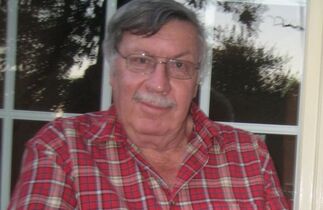|
Much has been said about mourning. Books have been written about how to mourn the loss of a loved one, and the stages of grief, neatly categorized, so we can know how to appropriately label our emotions. And yet, there are always critics on how others mourn. Not enough. Too much. Too outwardly. Boxing in emotions. Getting on with “normal life” too soon. Moping too long. Ready acceptance. Denial. And I suspect the reason why we are critical of others’ way of processing loss, is because we all do it differently – this coming to terms with the end. Because, ultimately mourning is a super personal thing. It is an individual sitting with the grief of losing another person with whom they had a unique, personal, individual relationship. With whom they had conversations, shared thoughts, that no one else had heard. With whom they had shared experiences. And physical touch. With whom they had laughed. And cried. Likely, argued. And sat speechless. And as individuals, they have to figure out how they will be carrying that loss with them in a manner that allows them to walk upright. To function. To love again. Because we carry loss with us. Mourning is not something we do until we’re done. Loss weaves itself into our fibers. In time it might become less obvious, a thinner, lighter thread, but always present. Three months after the passing of my father, I know I am still in the early stages of mourning. I’ll likely be stuck here for a while, because of circumstances preventing me from being in his space, or giving him a final, dignified farewell. Some may look at me and think I’m in denial, but I am very much aware.
I am aware that I will likely not experience the full impact of the loss until I walk through my parent’s door and hear only one voice greeting me. Have only one pair of arms folding me in an embrace. I know I will truly realize he is gone when I sit in their living room, waiting for the shuffle-sound of his slippers on the tile floor down the hallway. Watching in vain for his fingers to feel for the glass front bookshelf, a landmark in a world long gone dark for him. Never hearing the deep timbre of his voice, abundant with stories to share. And yet, my heart is not heavy. I mourned deeply the five days between the Tuesday that an aneurysm took his beautiful mind, and the Sunday his body gave out. That week was overflowing with tears. Tears for suffering past and possible suffering yet to come. My father had more than his portion of suffering. He systematically loss his eyesight over a period of about thirty years, of which the last decade was the most traumatic and painful. As his vision reduced, his world shrank. He lost so many of the things that brought him joy: the ability to teach, read, write, watch the waves wash out on the beach, see his grandchildren’s faces. I mourned the possibility of his world shrinking even smaller. Of him losing his vivid memory, his ability to talk, the last meager bit of his independence. I find that there is a duality in mourning. The deep sadness of the loss, combined with the relief that suffering has passed. Missing his presence in this world, but glad for him that he is spared the present brokenness of the world. It is that duality that makes it possible to walk upright. To find joy. To love. Because the very best way to honor his beautiful life, is to live beautifully. ~Amanda Smith
1 Comment
Izelde L
7/20/2020 02:18:01 pm
Your words are soul-touching, Amanda! I love the honesty and common sense portrayed in your blogs. The thoughts your have shared on your dad's passing reached deep into my soul and stirred sadness that have been residing there for over 30 years. How right you are: we should honor the deceased through lives lived well.
Reply
Your comment will be posted after it is approved.
Leave a Reply. |
On this page,I blog about life, motherhood, and faith. For more about writing, books, and authors, visit 24 Carrot Writing. Archives
February 2024
Categories |
Proudly powered by Weebly

 RSS Feed
RSS Feed